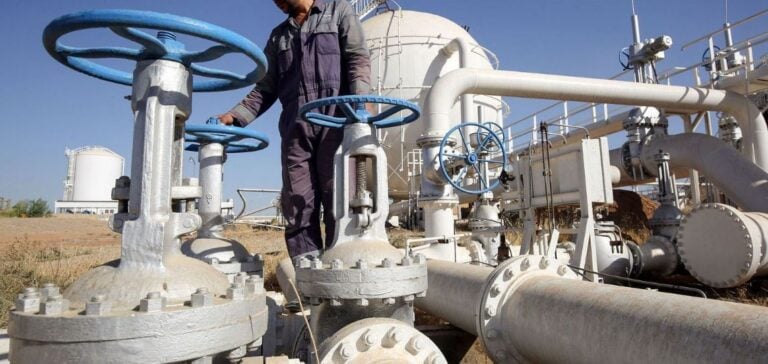Tensions between the autonomous government of Iraq’s Kurdistan region and the central government in Baghdad regarding oil exports persist, though Kurdish authorities remain hopeful for a resolution “as soon as possible.” Since March 2023, Kurdistan’s oil exports—amounting to around 450,000 barrels per day—have been halted following an international arbitration favoring Baghdad. This ruling now requires Kurdistan’s oil sales to be overseen by the Iraqi State Oil Marketing Organization (SOMO).
To ease tensions, Baghdad recently proposed the creation of an independent advisory body that would determine production and transportation costs of hydrocarbons in Kurdistan, in cooperation with Kurdish authorities. The federal government has provisionally set these costs at $16 per barrel, compared to a rate of $6 per barrel in southern Iraq, according to a source from Iraq’s Oil Ministry. This measure, which requires the backing of the oil companies operating in the region as well as the approval of the Iraqi Parliament, aims to restore cooperation for the commercialization of oil.
Massive Revenue Losses for Kurdistan
The blockage of oil exports represents a significant financial loss for Kurdistan, estimated at $20 billion by the Association of International Petroleum Companies in Kurdistan (APIKUR). These figures highlight the major economic impact of the situation for the region, which relies heavily on revenue generated by international oil sales, primarily through the Turkish port of Ceyhan.
In September, Kurdistan expressed interest in reaching an arrangement with Baghdad, as financial relations between Iraq and Turkey—another key player in Kurdistan’s oil export chain—remain complex. Baghdad has, in fact, secured an agreement with Turkey to suspend Kurdish exports via Ceyhan, a decision that further complicates the economic outlook for the autonomous Kurdistan region.
Towards a Revision of Oil Contracts
Among the ongoing challenges, the renegotiation of contracts with international oil companies remains a delicate issue. These companies, operating in Kurdistan under older agreements, receive a portion of the produced volumes in addition to recovering their production costs. Baghdad, aiming to enforce a more standardized and centralized model, may pressure these firms to accept terms more aligned with Iraq’s overall energy policy.
Yesar Al-Maleki, an economist at the Middle East Economic Survey, called Baghdad’s pricing proposal a “positive step.” However, he noted that “thorny issues” remain, particularly regarding the definition of new contract terms between Baghdad, Kurdistan, and the involved companies. This dispute underscores the economic and political challenges hindering the unification of energy policies in Iraq, where federal and regional authorities struggle to agree on a common model.






















